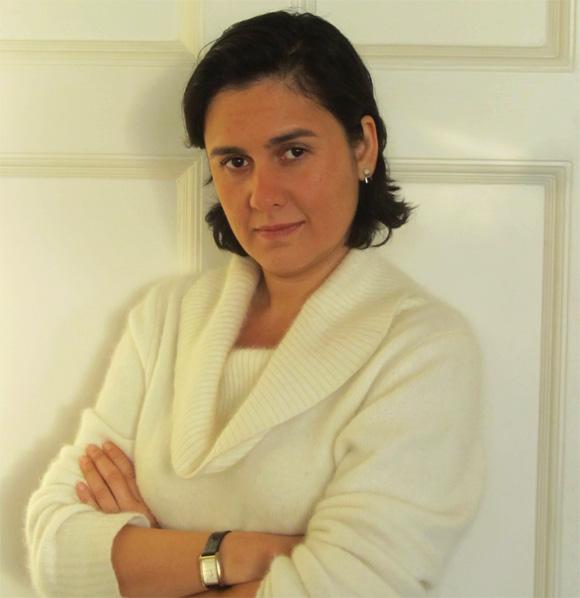
'It's true that you are aware of being a Pakistani in India in some way. I don't know how much of it is in my head as opposed to anything else. If I get into a taxi and someone asks "Where are you from?" I would hesitate before saying "Pakistan," says novelist Kamila Shamsie, whose latest book A God in Every Stone is an epic page-turner set in India's colonial past.
Kamila Shamsie, a Karachi native who recently became a British citizen, has a long and deep connection with India.
Her mother's family came from the erstwhile kingdom of Awadh (Lucknow). The decorated soldier Major General E Habibullah, founder of the National Defence Academy in Pune, was her maternal great-grand uncle. An uncle is Wajahat Habibullah, chairman of India's National Minorities Commission.
Hailing from a family with a robust literary tradition, her grandmother Jahanara Habibullah wrote her first book, about life in the princely state of Rampur, in the last years of her life. It was published shortly after her death at 84.
Her grand aunt was the famed novelist Attia Hosain and Kamila's mother, Muneeza Shamsie, is a well-known writer and editor in Pakistan.
With five books of her own, Kamila Shamsie is a prolific writer who has gone on to embrace bolder and epic themes. Her latest novel A God In Every Stone covers a sweep of history, unfolding a riveting story of love, friendship and betrayal in colonial Peshawar.
In an interview to Rediff.com's Archana Masih, she spoke of her love for history, the reason she became a British citizen and why Pakistan is in the most troubled part of its history.
What's the best thing someone has said to you about this book so far?
I was at the Karachi Literature Festival when this lady who I had met before came up to me. She teaches at the University of Peshawar and has been teaching my earlier novel.
She just took my hand in hers and said that even though I haven't read your book yet, I want to thank you because people don't write about Peshawar in novels. They only write about it in headlines as the place where bombs are going off -- and I just wanted to thank you for bringing your imagination to the city.
That was lovely!
The only Pakistani to receive the Bharat Ratna is Khan Abdul Ghaffar Khan and his movement against the Raj forms an important theme in your book. So here's a novel coming out in 2014, set in Peshawar, with a common thread for people in India and Pakistan, isn't it?
I wish it was entirely true. The other truth and one of the reasons I didn't hear about Khan Abdul Ghaffar Khan while growing up was that in Pakistan he was a very controversial figure.
The Pashtuns really revere him, but because he was so opposed to the creation of Pakistan and spent most of his life in prison or exile, Pakistan's official history doesn't really know what to do with him.
So actually within Pakistan he is a much more controversial figure.
Why did you want to write about him and his non-violent army?
The first time I really read about him was 7, 8 years ago in The Pathan Unarmed by Mukulika Banerjee which is about the Khudai Khidmatgar (Servants of God, a nonviolent agitation by the Pashtuns against the British).
He was clearly this extraordinary figure and it is so important because when people talk of Pathans now, they talk about violence. The fact is that the man who is still more revered there than anyone else is someone who developed from the Pushto code of the Pathans this idea of non violence. That seemed to be a very important story.
Please ...
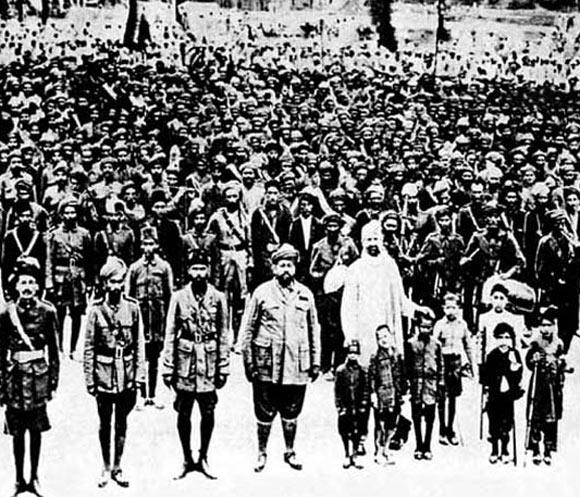
There is a line in the book which says 'You live in your history, we live in ours.' Do you think that line sums up how India-Pakistan view their own histories? That although there is a shared history before Partition, we accept the parts that we are comfortable with and ignore the parts that aren't?
I think it's very true and it's a sad truth. There needs to be a way where we can both feel completely comfortable about being two separate nation States while also acknowledging this very deep and rich shared history. We don't seem to be very good at that.
What is your assessment of where Pakistan is going, its battle against extremism and the dangers ahead?
Pakistan is at a very troubled point in its history. The violence is scary. We need the government to take the lead and we need a national consensus to act against extremism.
So far the Nawaz Sharif government hasn't been very good at that. You can never tell -- because one day there are peace talks, the next day you hear we are not talking with people who don't accept the writ of the constitution, then the next day there are peace talks again...
It's a frustrating time because you want a government to be strong, clear and find a way to bring the nation into agreeing on how to think and act. That is actually not happening right now.
Your book is set in Peshawar of a different time. It is one of the great historical cities of the world -- what were your impressions about the city?
When I visited Peshawar two years ago it was the first time I had been there. I had already written the early draft of the book.
I was very conscious that I didn't want contemporary Peshawar to get in the way of the picture I had built up of Peshawar in 1915 and 1930.
It was a very targeted visit. I went to the Peshawar Museum, the Street of Storytellers, an old merchant's house that they are restoring, an excavation site... but I didn't really wander about the city to get a sense of the present. I knew that was not helpful for a book set in 1930.
The reality of Peshawar today is of a place where there is a lot of violence, which also means that it is a place with a lot of resistance to that violence. It is terrible what is happening there.
I've written about this massacre of the Pashtuns by the British in 1930, but now there are bomb blasts on the Street of Storytellers and Pashtuns are killing Pashtuns. It is the saddest thing to witness.
Please ...
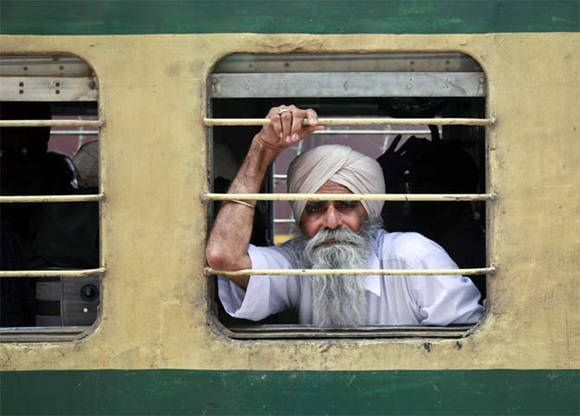
Sometimes are you apprehensive whether civil society will be eclipsed by the forces of extremism in Pakistan?
Yes, of course. There is always this basic problem that there are people who are willing to use violence. It is a lie to say that every act of intimidation and silencing is unsuccessful, it can be very successful. It is troubling because civil society in Pakistan is not as strong as it should be.
Was your decision to become a British citizen provoked by the apprehension or uncertainty about living in Pakistan?
No, it wasn't. It wasn't so much that I wanted to leave Karachi, it was that I wanted to be in London. There were various professional and personal reasons for that.
No, I wasn't fleeing the Taliban (laughs).
In an article, you quoted British-Libyan writer Hisham Matar, who told you that 'In that moment you are betrayed and betrayer both. You're betraying your country by seeking another passport, and you're betrayed by your country which makes you want to seek another passport.'
Do you feel betrayed in any way?
I think Pakistan, India and Bangladesh have betrayed that promise of Independence. Any country that has high poverty rates as we do across the subcontinent is basically betraying a very large section of its population.
Pakistan doesn't have that sort of welfare system or the infrastructure that it should and there are all sorts of problems. Pakistan has this issue of violence and it's also a very deeply patriarchal culture.
It's not that the UK is free of patriarchy, but if you are a single woman you feel it more in Pakistan certainly than you would in London. There are all these factors...
Pakistan is not a happy place right now.
Please ...
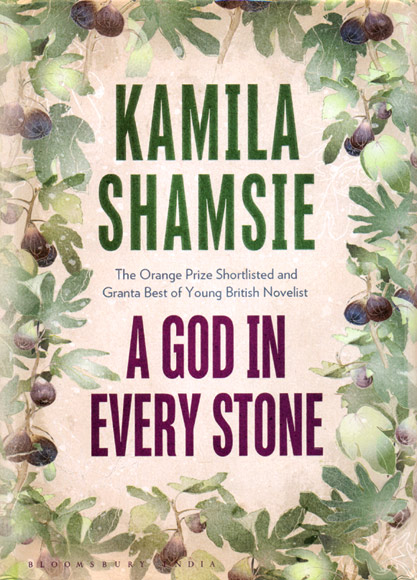
You live in London but your writings have been set in Pakistan, what keeps bringing you back to characters and settings in Pakistan?
I've been in the UK for six years now. I think my writing changed before I moved there. Burnt Shadows starts in Nagasaki, Japan, in a world I don't know.
I do now write very differently to the way I used to write about Karachi and the world I knew. I've written about Peshawar, a city I spent 5 hours in.
Having said that, the history and politics of Pakistan remain very interesting to me. Possibly because it is going through such a troubled state that you want to understand the different layers and levels of its history.
There is so much I am aware of now about the country that I didn't know when I was growing up such as Ghaffar Khan.
Since one is formed by her/his childhood and because mine was in Pakistan, that is the history that tends to be most interesting to me.
Considering the difficult relationship that India and Pakistan have, there have been instances of Pakistani artists facing attack in India -- how much does this hostility unsettle you?
It is important to stress that it is certainly not that when I walk down the streets people are throwing stones at me.
When I come to Delhi I am conscious of it mostly as a place where a lot of my friends are who I don't get to see.
But it is also true that you are aware of being a Pakistani in India in some way. I don't know how much of it is in my head as opposed to anything else.
If I get into a taxi and someone asks "Where are you from?" I would hesitate before saying "Pakistan."
It is just something that gets into your head. I don't honestly think that if I said to a taxi driver that I am from Pakistan, he would turn around and do anything (laughs).
It is just because it has been historically such a bad relation and every so often something unpleasant happens, that little unsettling idea in your head you cannot really get out of at most times.
I have never felt in any way physically threatened in India, not for a second. But I am aware that there may be people around me who would not feel happy about a Pakistani, let's put it that way.
It is more an abstraction rather than anything that has ever happened.
Please ...
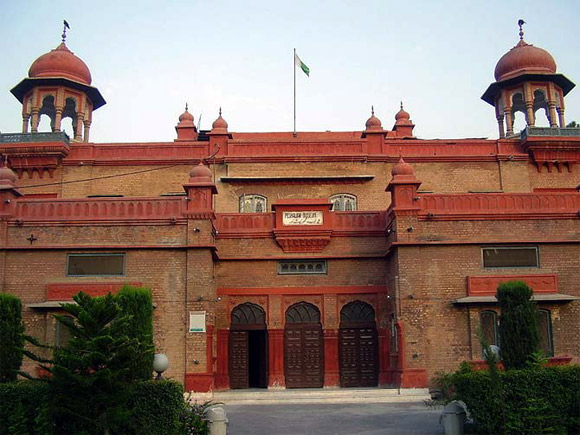
What are some of the interesting Indian books you have read lately?
I always read Pankaj Mishra. His From the Ruins of an Empire was a really good. It was an interesting way of turning history around. To look at the history of Asia rather than the history of Europe.
Rahul Bhattacharya's Pundits from Pakistan which I recently re-read remains one of my favourite books.
And in Pakistan?
I hear Moni Mohsin's The Diary of a Social Butterfly is coming out soon and I've always loved Moni's work.
The book that I haven't read yet but just bought before leaving Karachi a few days ago was The Prisoner by Omar Shahid Hamid who used to be with the police. He has got a very interesting take on Karachi and the world of police and criminals.
When a book is published and you can revel in what you've achieved -- is that the best phase in a writer's life?
The nicest phase is when you are quite near the end of the book. That is my favourite bit. The beginning of writing a book is really tough for me, but when you sense you are reaching the end, it is a very satisfying feeling.
Your book covers a sweep of history, where did you source your material from?
Mukulika's book was a starting point. There are collections of Khan Abdul Ghaffar Khan's speeches translated into English.
It is one of the ironies of life that London is the best place to be for studying colonial Peshawar. It has so much archival information.
I went through the India Office Library archive to see documents that were being produced at that time to get a sense of the politics then.
I have always loved history. The period covered in the book is such an interesting period and it is so well documented in the library.
I spent days and weeks there discovering things that were thrilling, which often made you very angry or sad but there was a wonderful sense of discovery.
What fascinated you about Gandhara art? How is that art form with its strong Buddhist influence preserved in that region?
Peshawar Museum has the world's best collection of Gandhara Art. The second largest is in the Lahore Museum and third largest is, I think, in the Taxila Museum.
I have been to all three and they are beautifully maintained. They have exceptional Gandhara work and they are certainly there and on display, but I don't think enough people go and see them.
According to me, the best thing in all of Pakistan is the Peshawar Museum.
What do you see as the way forward for both India and Pakistan?
I think it seems so obvious to so many of us that hostility is not beneficial to both countries. It is such an easy thing to say, but it requires equal political will on both sides of the border to get to the next stage.
The problem is that it takes so much to build things up into a better relationship and so little to derail it and that has always been the trouble between the two countries.